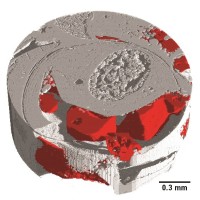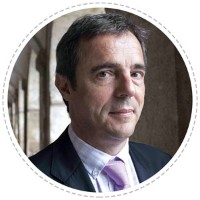The New Pores International HubNew Frontiers in Porous Materials
Launched in 2019, New Pores (New Frontiers in Porous Materials) is the first international hub created by E2S UPPA.
Built with Northwestern University, located on the shores of Lake Michigan near Chicago, the New Pores hub associates:
- 7 UPPA researchers from the Laboratory of Complex Fluids and their Reservoirs (LFCR)
- 5 researchers from Northwestern University,
- and more than 10 PhD students, some of whom under joint supervision by both universities.
On certain subjects, Belgian and Spanish scientists (from the Universities of Liège, Vigo and Madrid) are also hosted as associate researchers.
Concrete applications for the New Pores hub
Beyond a general modelling methodology, the work of New Pores aims at concrete applications. In terms of sustainability, the researchers will be looking at the effects and safety conditions of geological CO2 storage over time, as well as in the fluid-solid interactions at work in porous materials, including cement materials.
Another aspect of New Pores concerns the design of new porous materials capable of safely storing hydrogen and bio-inspired structural and functional materials.
A tenfold increase in research
According to Gilles Pijaudier-Cabot, who heads the hub alongside his colleague from the LFCR David Grégoire and the American Gianluca Cusatis, “New Pores deals in particular with the interactions between fluids (hydrocarbons, water, salt, etc.) and solids in porous media. It will enable us to increase our research work tenfold. All the more so as we have managed to integrate into the team Zdeněk Bažant, a professor at Northwestern University, who is considered, according to the Stanford rankings, to be one of the best scientists in the world in applied mechanics.”
Gilles Pijaudier-Cabot
Professor, Executive Director of E2S UPPA
Coordinator of the New Pores Hub
Designed on the model of the Inria project teams, thematic hubs are among the flagship features of E2S UPPA. Led by the E2S UPPA external scientific council, these hubs bring together experienced researchers who devote themselves for five years to a scientific programme in UPPA’s fields of excellence.

